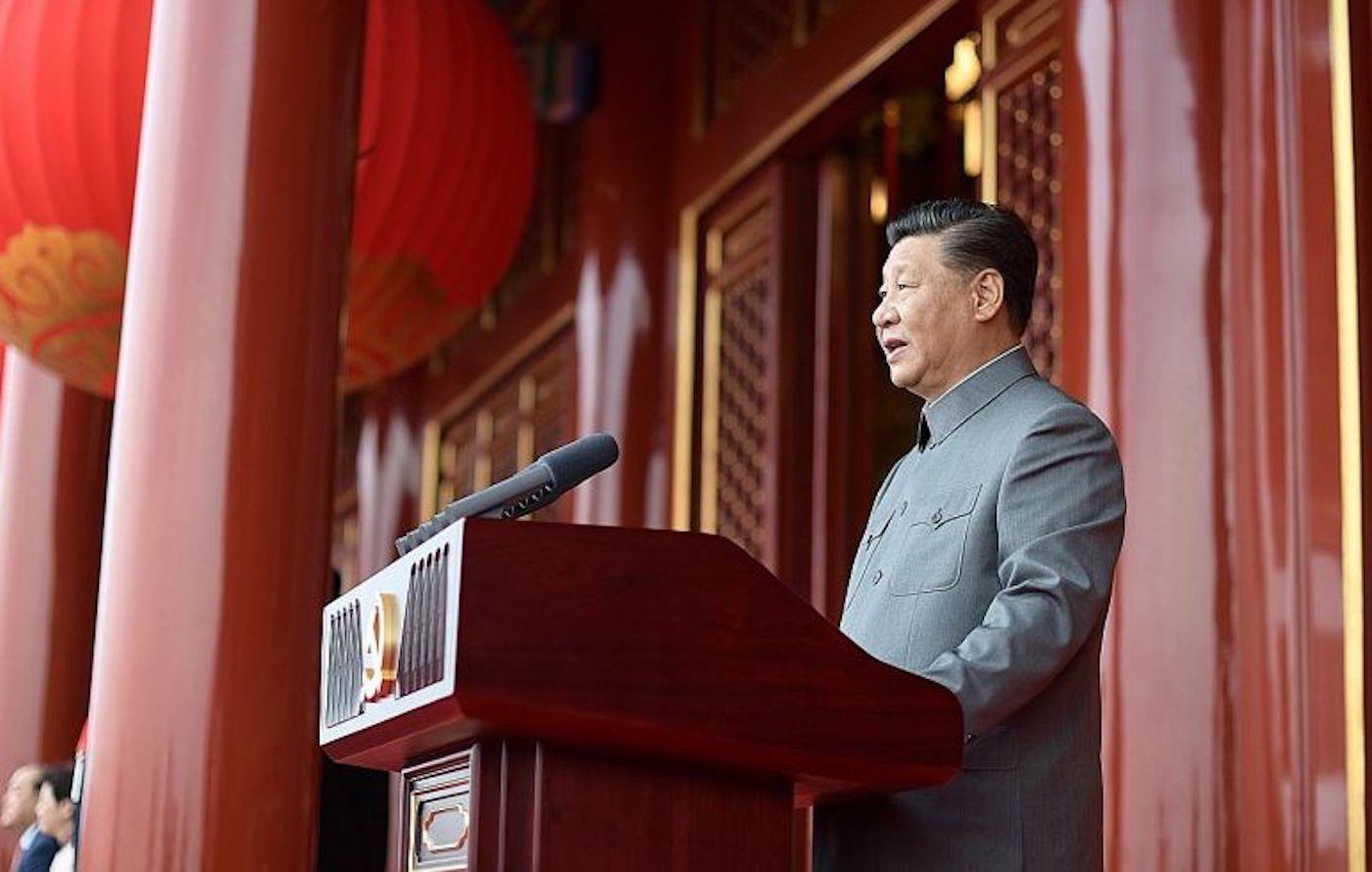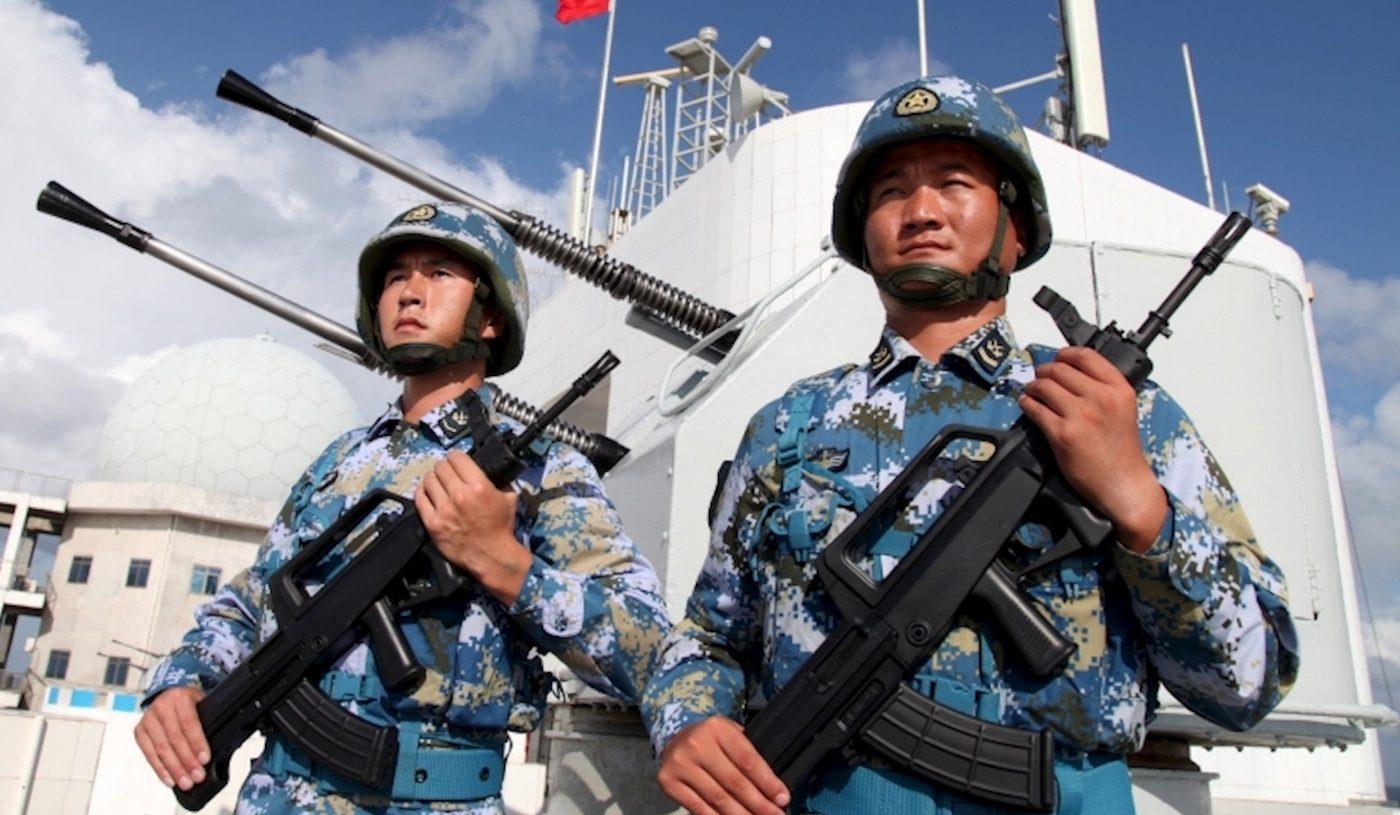(MENAFN- Asia Times)
Several respected foreign affairs analysts have recently argued that China's relative power is peaking and will soon go into decline, prompting Beijing to behave more aggressively between now and the end of the decade.
This view is well-argued and consequential, but – fortunately – questionable.
Proponents of this view first point out the well-known obstacles to China achieving superpower status. China is running out of resources, its productivity is decreasing, its economic growth is permanently slowing and its population is rapidly aging.
The government under Chinese Communist Party (CCP) General Secretary Xi Jinping is implementing policies that stifle innovative forces and privilege inefficient state-owned industries. Countries in the developed world are less welcoming of economic partnership with China.
These analysts argue that Xi's government realizes China is now reaching an apogee that will soon give way to a gradual shrinkage of its relative power and international influence. They predict Beijing will seek to grasp what strategic gains it can before this brief window of opportunity closes.
This, they say, will make the decade of the 2020s extraordinarily dangerous as China rushes to exploit its last chance to settle scores in the Asia-Pacific region. There are, however, several problems with this analysis.
Chinese elites do not consider China to be on the verge of decline. The dominant sentiment in China – from the top leadership down through lower officials, the education system, public intellectuals, journalists and social media – is hubris: it is the United States that is purportedly in decline, along with the ideology it champions, while China is ascendant and is now reshaping the world to suit Chinese preferences.
One might argue that despite the triumphalist posture, behind closed doors Xi and the other Politburo Standing Committee members have secretly concluded that China's fortunes are about to reverse.

Chinese President Xi Jinping is poised to take a third five-year term. Image: Agencies / Pool
If that were true, we could expect to see policies and rhetoric from the top leadership that prepares the Chinese people psychologically for slower economic growth and a less ambitious projected role for China in regional and global affairs.
The CCP elders know that allowing the public to harbor unrealistic expectations for China's continued rise in wealth and international clout, and then failing to meet those expectations, would endanger the Party's mandate to rule.
Yet Xi and other leaders continue to assert that“time and momentum are on China's side ,” that “the East is rising while the West is declining” and that China is transforming international relations from a cruel Western-dominated system to one based on traditional Chinese values.
Whether it is“Wolf Warrior diplomacy,” public humiliation of US government officials to demonstrate that China is the boss, or picking fights with multiple adversaries simultaneously, Xi's government seems supremely confident to the point of cavalierly burning bridges of goodwill.
Rather than Zhongnanhai secretly believing China has peaked, a more convincing explanation is that, as Jude Blanchette argues , Xi believes China can overcome the domestic economic, demographic and environmental obstacles to continued high rates of economic growth by quickly gaining global dominance in the high-value technologies of the future (biotechnology, artificial intelligence, quantum computing, robotics and so on) while the United States is mired in political dysfunction and social decay.
The notion that China would choose to start a war, not because present circumstances demand war but out of belief in a closing window of opportunity, assumes that Beijing is extraordinarily aggressive. Beijing, however, is relatively cautious in its use of force.
Observers who have characterized several recent Chinese foreign policy moves as“aggressive” typically mention increased PLA patrols and military exercises near Taiwan and the disputed Senkaku Islands, the building of military bases on artificial islands in the South China Sea, the Galwan Valley skirmish with India, encroachment into the territory of Nepal and Bhutan, and disregard for the Sino-British Joint Declaration on Hong Kong.
But most of these PRC policies are at least partly Chinese reactions to moves by other countries. More importantly, all of these policies involve no or very low risk of significant military conflict with an adversary. They are more opportunistic than aggressive.
If it anticipated an impending period of waning relative power, demonstrably risk-averse Beijing would be inclined to avoid entering that period under the disadvantage of having recently antagonized strong regional states through aggressive military action.
Throughout history, Chinese governments have presented themselves as cooperative rather than confrontational when they assessed that the configuration of international forces was not favorable to prevailing through the use of force.

Chinese PLA Navy soldiers on a naval vessel in a file photo. Photo: Twitter
Most recently, Deng Xiaoping and Jiang Zemin suppressed their own nationalist impulses because they believed a clash with the US was counter-productive while China was in catch-up mode. A return to a lower-profile, non-threatening foreign policy is the more likely Chinese response to perceived self-decline.
While making their case that Beijing feels pressured to rush into war this decade, Hal Brands and Michael Beckley observe that“other countries are pushing back against Beijing's assertiveness.” As they note:“An array of actors is gradually joining forces to check Beijing's power and put it in a strategic box.”
This observation is correct, but it actually undermines their larger argument. The pushback, which includes consolidation of the Quad joint security alliance (Australia, Japan, US and India) and the increased likelihood that Japan would help defend Taiwan , is already so formidable as to probably deter China from embarking on a campaign of military aggression even in the 2020s.
The closing window argument is only persuasive if we postulate that the Xi regime concludes it could win a war of expansion today but could not win the same war 10 years from now. The argument doesn't work if the Chinese think they would lose the war today but would lose even worse in a decade.
The most worrisome scenario is a PRC attempt to annex Taiwan by military force. The view that a peaking China is dangerous holds that Beijing's chances of prevailing in a Taiwan Strait war are highest in the late 2020s and will recede thereafter.
This is largely based on a comparison of US and PRC naval capabilities, an important consideration because the war would mostly be fought at sea. The Chinese navy already has more ships than the US navy, and that gap is expected to widen through the year 2027.
But it might widen further after 2027 if the two countries' current naval shipbuilding trends continue. China's advantage in order of battle might be greater in 2037 than in 2027. It's not clear there is only a brief and closing window of opportunity for a Chinese victory. Thus the rationale for China preferring an earlier war is weakened.
Beijing has amply disproved its own claim that a strong China“will never seek hegemony, expansion, or a sphere of influence.” A weakening China would promise not an intensification of this problem, but rather relief from it.
Denny Roy ( ) is a senior fellow at the East-West Center, Honolulu. He specializes in strategic and international security issues in the Asia-Pacific region. Follow him on Twitter: @Denny_Roy808.
MENAFN02042022000159011032ID1103952094
Legal Disclaimer:
MENAFN provides the information “as is” without warranty of any kind. We do not accept any responsibility or liability for the accuracy, content, images, videos, licenses, completeness, legality, or reliability of the information contained in this article. If you have any complaints or copyright issues related to this article, kindly contact the provider above.